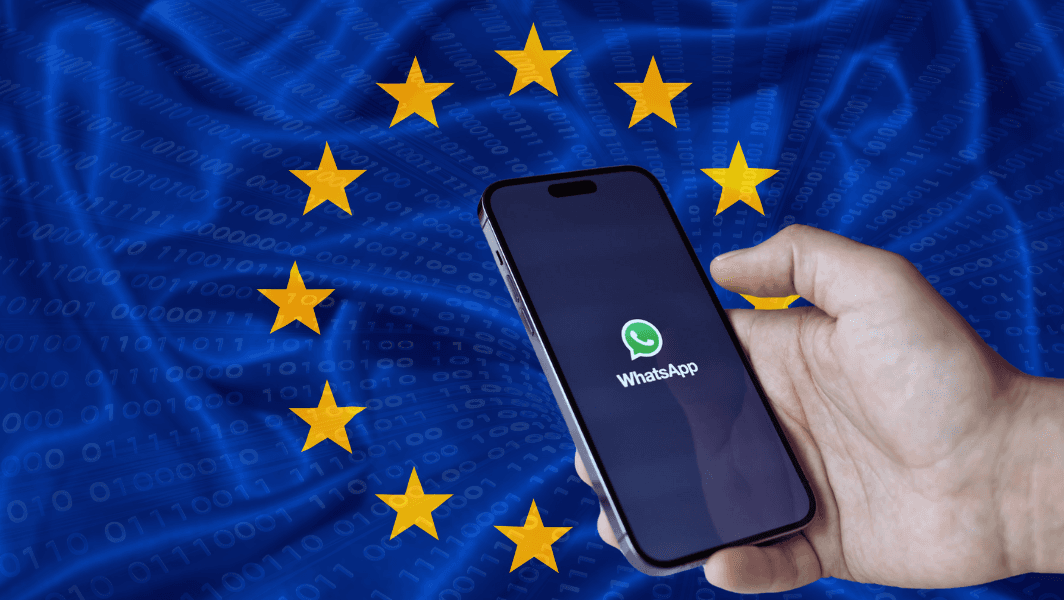
WhatsApp Faces Stricter EU Regulations After Being Designated as a ‘Very Large Online Platform’
New EU tech rules under the Digital Services Act aim to increase transparency and user protection
WhatsApp, the popular messaging service owned by Meta Platforms, is set to face stricter regulations under the European Union’s Digital Services Act (DSA) after being classified as a Very Large Online Platform (VLOP). This designation comes as part of the EU’s broader strategy to hold major tech companies accountable for how they manage content, protect user data, and ensure transparency.
The move puts WhatsApp in the same regulatory category as other tech giants like Facebook, Instagram, TikTok, and X (formerly Twitter). The European Commission made this designation based on WhatsApp’s massive user base, which exceeds the 45 million active users threshold set for VLOPs under the DSA.
What the New EU Regulations Mean for WhatsApp
The DSA, which officially came into effect in 2023, is designed to create a safer digital space for users across the EU. By labeling WhatsApp as a VLOP, the platform is now required to comply with stricter obligations that go beyond the standard rules for smaller platforms. Key requirements include:
-
Greater Transparency: WhatsApp will need to provide detailed reports on content moderation practices, algorithm use, and how it tackles misinformation.
-
Risk Assessments: The platform must regularly assess potential systemic risks, such as the spread of illegal content, disinformation, or harm to fundamental rights.
-
Data Sharing Obligations: WhatsApp will be required to share data with EU authorities and researchers to ensure regulatory compliance.
-
User Empowerment: New tools must be introduced to allow users more control over their data and recommendations, ensuring greater privacy protection.
Failure to comply with these obligations could result in hefty fines—up to 6% of the platform’s global annual revenue.
Why WhatsApp Was Classified as a Very Large Online Platform
The decision to designate WhatsApp as a VLOP stems from its massive presence in the EU market. With millions of users relying on the platform for daily communication, the European Commission argues that WhatsApp has a significant societal influence, making it subject to more rigorous scrutiny.
Unlike other social media platforms, WhatsApp is primarily a private messaging service. However, the app’s features, such as group chats, broadcast lists, and business tools, allow for the rapid spread of information across large audiences, increasing its responsibility under EU laws.
Meta’s Response to the New Regulations
Meta, WhatsApp’s parent company, has acknowledged the designation and stated that it will fully comply with the DSA requirements. A company spokesperson emphasized Meta’s commitment to providing secure and private communication channels while also respecting regulatory standards.
Meta has previously taken steps to align with EU laws by enhancing its data protection measures and improving content moderation practices. However, being categorized as a VLOP will require WhatsApp to introduce additional safeguards and operational changes to meet the new legal obligations.
The Broader Impact on Tech Giants in the EU
The DSA is part of the EU’s ambitious plan to curb the power of Big Tech and ensure a fair, safe, and transparent digital market. Companies like Google, Amazon, Apple, and TikTok have already been categorized as VLOPs, and they, too, are subject to stringent regulatory requirements.
For WhatsApp, the challenge lies in balancing user privacy—particularly its end-to-end encryption—with the EU’s demand for transparency and accountability. The platform must navigate these regulations without compromising the security and privacy features that define its core user experience.
What’s Next for WhatsApp and Its Users?
With the DSA now fully in force, WhatsApp is expected to implement significant changes to ensure compliance. These could include new tools for reporting harmful content, increased transparency around data usage, and enhanced user controls over their information.
For users within the EU, the new rules promise greater protection and transparency, offering more insight into how their data is used and how content is managed on the platform. For Meta, it marks another chapter in its ongoing struggle to adapt to the increasingly strict regulatory landscape in Europe.
As the European Commission continues to monitor compliance, WhatsApp’s journey under the DSA will likely serve as a key example of how messaging platforms adapt to a new era of digital accountability.
For any enquiries or information, contact info@thelawreporters.com or call us on +971 52 644 3004. Follow The Law Reporters on WhatsApp Channels